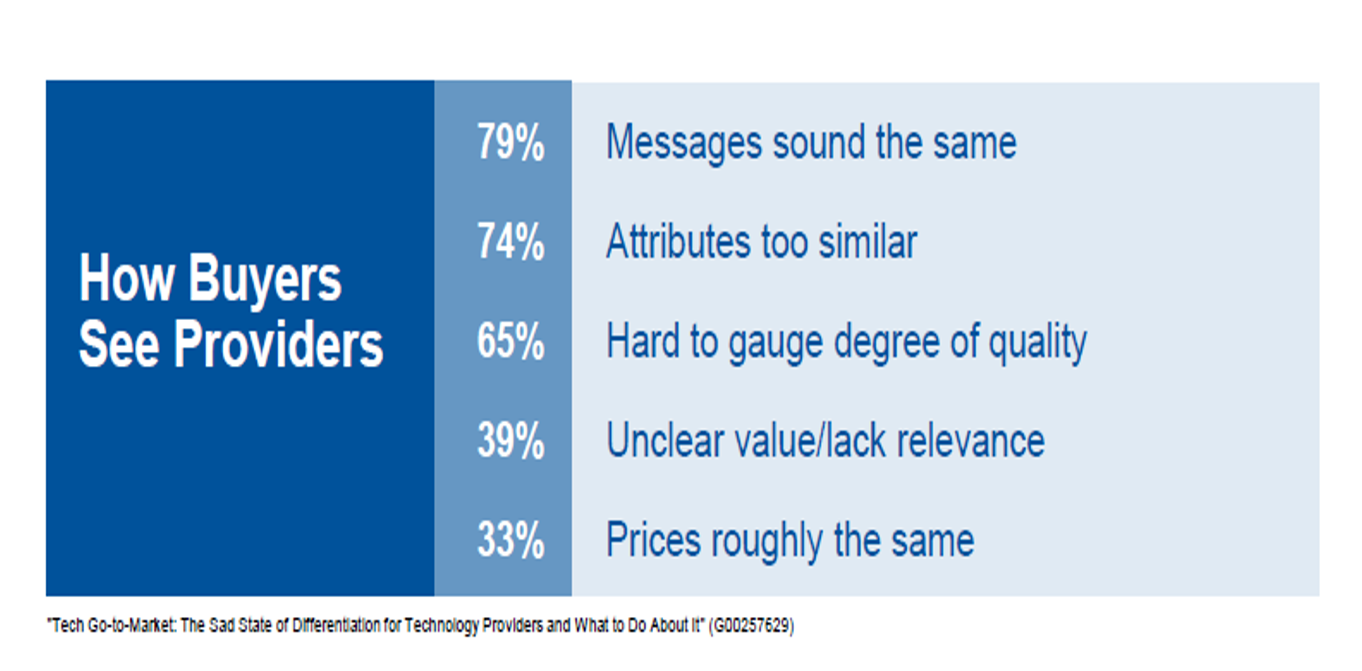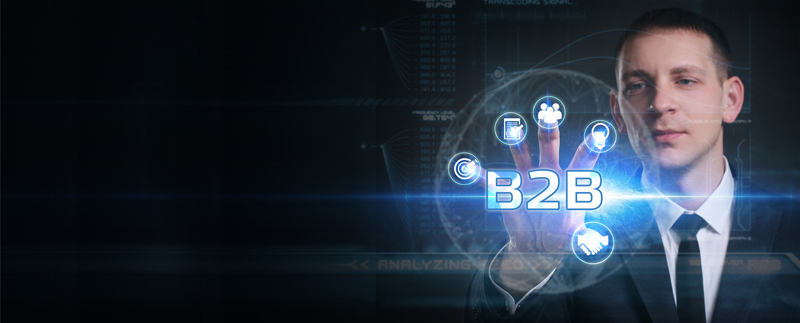The first thing that comes to your mind when you think of B2B Marketing, is a lackluster world of data sheets, product brochures, and death by PowerPoint presentations. While marketing is perceived as a glitzy profession, the average B2B marketer has remained an indigent stepsister of the B2C marketer. But, looking at the pace at which B2B technology brands are embracing marketing, things are about to change – change fast.
Here are Six B2B Technology Marketing Trends that will drive your attention in 2018 and beyond. While some these predictions may not come as a surprise, it will surely serve as a cue to the dramatic transformation we are witnessing in the business-to-business technology marketplace.
#1 The line between B2B and B2C marketing will blur in 2018
We are prone to assume B2B buyers are emotionless left-brained bargain hunters. But research shows a dramatic shift in their demographics and customer journeys. According to a study by Google and Millward Brown, 46% of potential buyers researching b-to-b products are millennials today. There is acceptance in the marketplace that emotions account for a good 50% of their buying decisions.
Take Away for the B2B Marketer: To stay relevant to this audience, B2B marketers need to start looking at marketing more like B2C brands. They need to humanize the buyer, carefully track their buying journeys and offer them an on-brand experience. As the lines between B2B & B2C blur, the focus should be on a P2P (person to person) experience where the CIO is treated as a person first and then as an institutional buyer.
#2 Marketing will become a primary source of differentiation for B2B Technology Brands in 2018
We live and operate in an undifferentiated world, where there is a lack of distinction – not just in products but in branding messages too. According to a Gartner research, less than 25% of B2B buyers find any differentiation between their vendors. Nearly 79% of B2B technology buyers say product messaging sound the same, while 74% find features and functionalists undifferentiated.

Take Away for the B2B Marketer: To remain competitive, B2B marketers need to take cognizance of this in 2018 and help their brands differentiate with smart marketing. 2017 already has seen some action in this space with market-leading brands going through makeovers and refresh projects. As the market watches them reap the fruits of differentiation, more and more B2B brands will move away from monotony and step forward to use marketing as a strategic driver of differentiation.
#3 Content marketing will shift from just building ‘brochures’ and ‘data sheets’ to storytelling in 2018
51% of B2B buyers rely on content now to research their buying decisions. They want shorter and more interactive content that educates rather than sells. B2B buyers are tired of the same old wine in new bottles, yet the average B2B marketer spends more time building product brochures, data sheets and reams of inward-looking content that aims to sell. Outcomes from a content preference survey offer the following insights:
- 73% of B2B buyers view case studies during their research
- 96% of B2B buyers want content with more input from industry thought leaders
- 47% of B2B buyers viewed three to five pieces of content before engaging with a sales rep
Source: Content preferences survey report from Demand Gen Report
Take Away for the B2B Marketer: To achieve a better ROI from their content marketing efforts, B2B marketers need to adopt storytelling as a strategic priority. Marketing resources with an ability to breathe life back into droning corporate messages will be preferred over conventional content writers. There will be concentrated effort into building content that is engaging, entertaining, and enticing – something that doesn’t sound exasperatingly salesy.

#4 The in-house agency model will come of age in 2018
Conventional B2B technology brands do not invest in-house marketing teams as much as the rest of the world and have a high dependency on external agencies. This naturally translates into lesser control over content, higher costs, lack of consistency and agility – limiting both the quality & quantity of content and campaigns. By bringing to bear seasoned & creative professionals in-house, forward-looking B2B brands have started driving more accountability. And, to attract and retain such talent, these brands have also started offering a vibrant agency-like work culture.
This strategy may not work for all brands and it’s also impossible to insource every elements and function of marketing. Most brands will continue to depend on trusted external agencies to plug skill gaps in specific areas such as PR, event management, and market research.
Take Away for the B2B Marketer: In 2018, B2B marketers need to take matters into their own hands and work on moving most critical marketing functions in-house. Full spectrum marketing teams that mimic external agencies, not just in capabilities and skills but in their vibrancy, will outshine the competition. This approach offers them the agility to respond to internal & external stakeholders at the speed of thought. Just not to overcook, specialized functions like PR, are best left to the specialists.
#5 Automation will no longer be a choice, but table stakes in 2018
Automation has been on the minds of B2B technology brands for years, yet their state of readiness, knowledge, and skills have been far from the adequate. Marketers now have access to the more technology than ever before. As technologies like Artificial Intelligence, Machine Learning, Advanced Analytics and Big Data further advance making adoption easy, there will be an increased drive to better them to manage content and drive marketing ROI.
In 2018 more and more B2B brands will integrate their content strategy with marketing automation to ensure the right content is used in the right phase of the customer journey
Take Away for the B2B Marketer: B2B marketers will be forced to skill themselves in marketing automation to remain productive. It will help them to be more productive, generate and nurture leads, manage social channels, offer personalized content, gather customer insights, run account-based marketing, and drive marketing ROI.
#6 Data-driven digital marketing will continue to edge over offline spends in 2018
B2B Technology brands will spend more budgets on Marketing for all the 5 above-mentioned reasons and more. But as a note of caution, higher budgets don’t mean more thoughtless spending, buying higher sponsorship packages or executing events at fancier hotels. In 2018, brands will look to rebalance their marketing mix and invest more only in tried-and-true tactics and areas. Data-driven digital marketing tactics will see an increased spending.
For the last 3 – 4 years, digital spends has been on the rise; in 2018, it will climb further. According to Gartner, three factors contributing to this shifting spend pattern include:
Take Away for the B2B Marketer: All said and done, the raison d’etre of marketing is to fuel business growth i.e. generate more qualified leads. Digital marketing allows marketers to run hyper-targeted marketing campaigns, offer contextual content, nurture leads and above all – offer a better customer experience. B2B marketers should take a digital-first approach as they plan their marketing-mix for 2018 and stay away from any tactic that doesn’t allow them to hyper-target or measure ROI.
- Categories
- Tags
- Archives
Subscribe For Updates
Get the Servion Blog updates in your inbox.
Recommended For You
- C-Zentrix Partners with Servion to offer cloud-based omnichannel and AI-powered contact center solutions in India
- The Road to Adoption: ChatGPT is the EV of customer experience
- Why is customer service still a challenge in today's business landscape?
- From Interactions to Journeys: How to Start Managing CX Holistically
- Proactive Outreach in Customer Service, Impact and Use Cases











